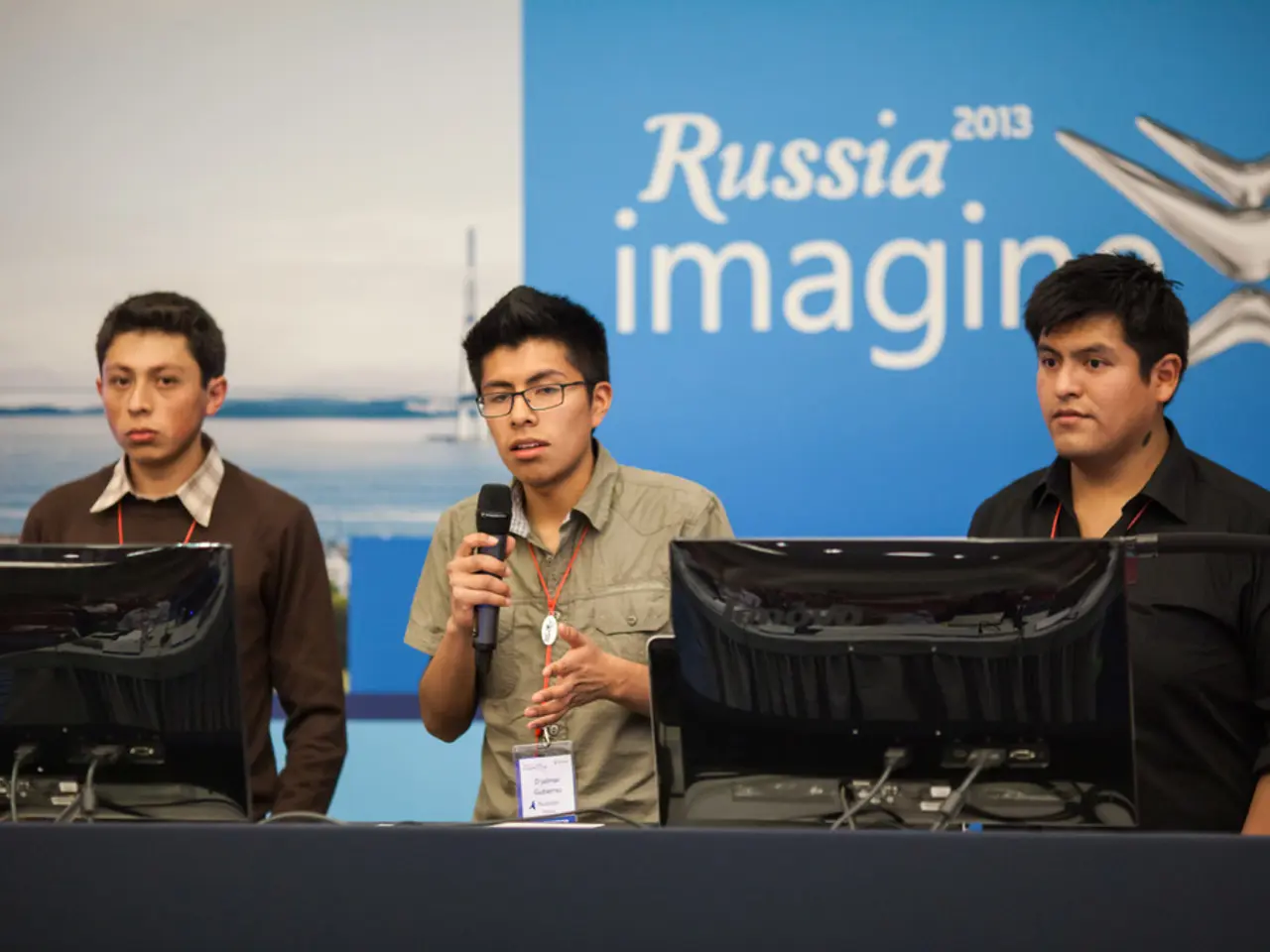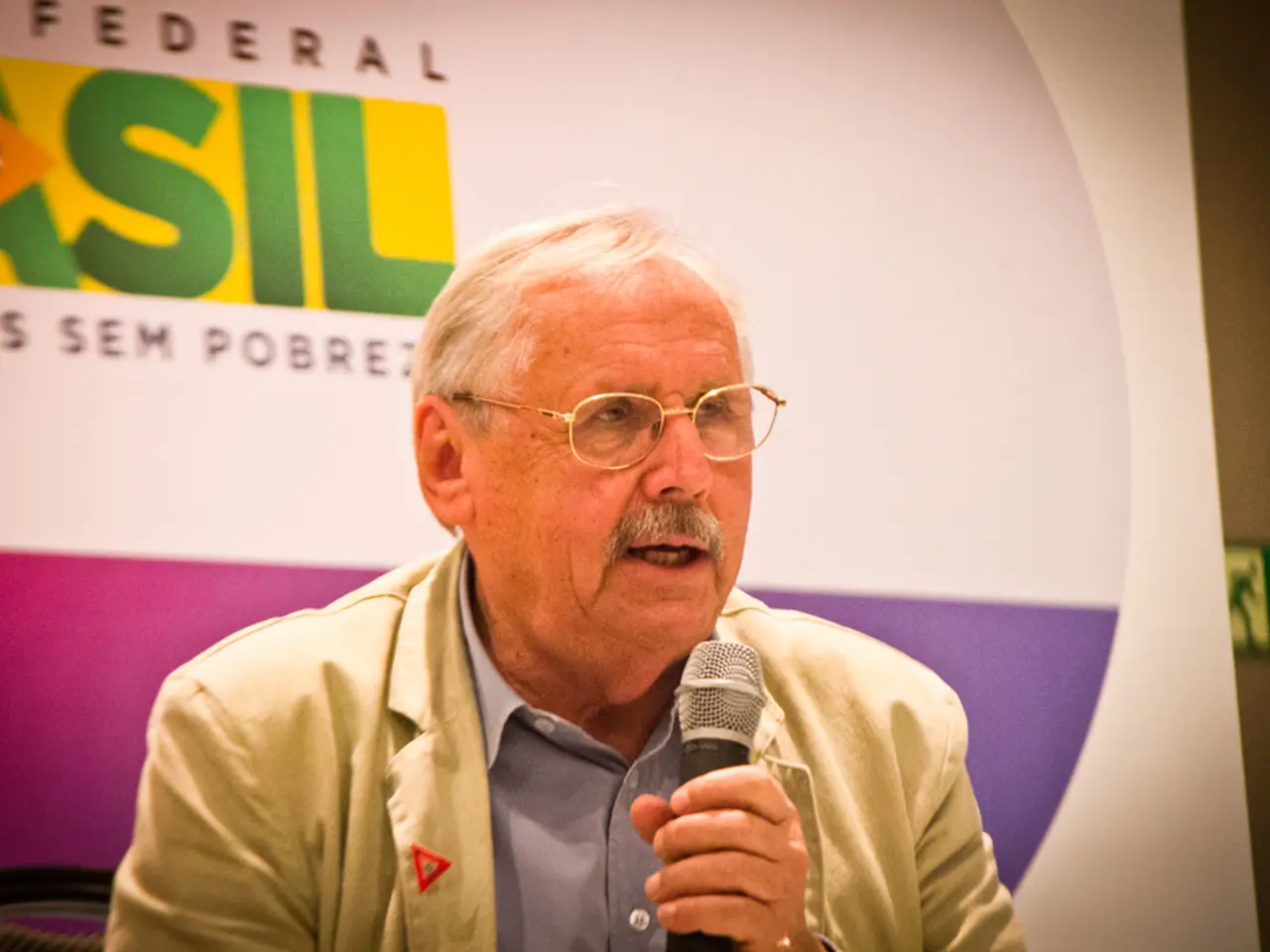While Russia Panders High Interest Rates, Reshetnikov Warns Recession Loom
Russia's Minister of Economy, Reschetnikov, posits the nation teeters on the edge of an economic downturn or recession.
Share on Facebook Tweet this WhatsApp Email this Print this Copy Link
Maxim Reshetnikov, Russia's Economic Minister, voiced concerns about a worrisome economic slowdown after two years of growth, placing Russia "on the edge of recession", as he bluntly stated at the Economics Forum held in Saint Petersburg. Businesses across the nation are buckling under the weight of loans bearing exorbitant interest rates, amplifying their existing financial burdens. His statement can be interpreted as a critique of the central bank's current policy.
Russia's economy flourished in 2023 and 2024 majorly due to elevated military expenditures. In 2024, the rate reached a robust 4.1%, according to official statistics. However, experts argue that such spending patterns aren't sustainable and don't adequately represent real productivity gains. Consequently, in the first quarter of this year, Russia's GDP growth rate inched at a modest 1.4%.
In recent weeks, a handful of economic indicators and Reshetnikov himself have levied criticisms on elevated interest rates. At present, the key interest rate stands at a towering 20%, a decision taken by the central bank aimed at reining in spiraling inflation within the country. Prices for consumers have been surging for an extended period, with the inflation rate hovering close to 10% in May.
Later, Reshetnikov clarified to reporters assembled in Saint Petersburg that he hadn't predicted a recession but rather stated that the country lay on the threshold. Everything, he explained, hinges upon the decisions made by the government in the upcoming weeks. "I believe that if everything is executed correctly, we can avoid this predicament", he said. He intends to reassess the situation in August, "once most decisions have been made and the consequences of past decisions are evident."
The Impact of High Interest Rates on Russia's Economic Recession:
- Tractable Monetary Policy and Economic Prosperity: Exorbitant interest rates are applied to control inflation, which peaked beyond 10% in early 2025 and steadily declined since. With interest rates serving as a deterrent for borrowing, such high amounts restrict investment and consumption, key drivers of economic growth. This, in turn, potentially escalates economic contraction or even recessionary pressure.
- Economic Growth Forecast: The Bank of Russia predicts a sluggish economic growth of 1-2% for 2025 despite the challenges posed by high interest rates and inflation. This prognosis signals that the rates' elevation partially hinders a stronger recovery after the economic hardships encountered previously.
- Inflation Control vs. Economic Activity: The Bank of Russia seeks to curtail domestic demand, which currently surpasses supply expansion rates. This is aimed at averting an overheated economy and repositioning it back onto a sustainable growth trajectory. Conversely, this move delays economic recovery, leading to what can be perceived as a recessionary climate by businesses and consumers.
Sources: ntv.de, AFP.
[1] Enrichment Data: In early 2025, the Bank of Russia held its key interest rate at a record high of 21%, and monetary policy remained tight to tackle persistent inflationary pressures still lingering despite indications of subsiding core inflation. The Bank has gradually reduced the key rate, achieving a 100 basis point cut to 20% by June 6, 2025, but has maintained a tight stance to ensure inflation reaches the 4% target by 2026.
[2] Enrichment Data: The Bank of Russia's policy of maintaining high interest rates, around 20-21%, until mid-2025, is primarily designed to control inflation, which still lingers above the target but has declined gradually. The tight monetary policy restricts borrowing, leading to reduced investment and consumption, which can create slower growth or even exacerbate recessionary pressures. As inflation recedes, the Bank has begun lowering rates but maintains a tight policy to ensure a return to stable growth and inflation targets.
- The high interest rates in Russia, currently at 20%, are a significant concern for businesses under the weight of loans, as they amplify existing financial burdens, a situation that might contribute to the looming recession.
- The continuous implementation of stringent employment policies in Russia, coupled with the elevated interest rates, could potentially discourage investment and consumption, leading to a potential escalation of economic contraction or even recessionary pressure.






